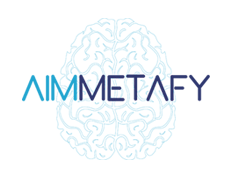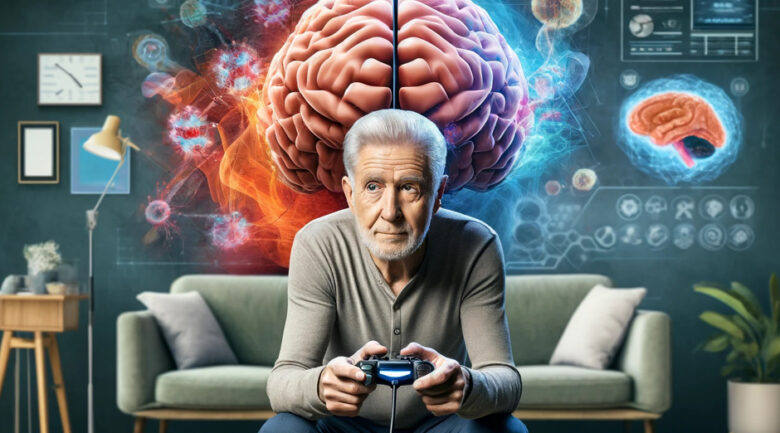As the world grapples with an aging population, dementia has become an increasingly pressing issue for families and caregivers alike. Fortunately, the emergence of innovative data technologies is providing new solutions to support those affected by this condition. In this blog, we will explore how these technologies are transforming care for dementia patients and their families, offering hope and improved quality of life.
Understanding Dementia: A Brief Overview
Dementia is an umbrella term for a range of conditions affecting memory, thinking, and social abilities. Understanding the nuances of dementia is crucial for tailoring technological solutions that truly meet the needs of patients and caregivers.
As we dive deeper into dementia, it’s worth noting that its impacts extend beyond the individual diagnosis. Families, friends, and caregivers all feel the effects, creating a ripple that necessitates compassionate support. Various types of dementia, such as Alzheimer’s disease, vascular dementia, and others, manifest differently, making personalized care incredibly significant.
Recognizing the symptoms of dementia early on can pave the way for timely interventions. Patients may experience memory loss, confusion, and changes in personality. Here, technology can shine as it not only aids in diagnosis but also in monitoring the progression of the condition.
The Role of Data Technology in Modern Care
Data technology is revolutionizing healthcare. In the context of dementia, tools like data analytics, patient monitoring, and artificial intelligence are paving the way for personalized care plans and better patient outcomes.
With the help of data-driven strategies, healthcare providers can analyze vast amounts of information to identify patterns and trends in patient behavior. This kind of analysis allows caregivers to devise individualized treatment strategies that cater to unique cognitive challenges faced by dementia patients.
Additionally, advancements in machine learning are equipping caregivers with tools that not only predict potential deteriorations but also suggest proactive measures. This seamless integration of data technology holds the promise of improving everyday interactions and ultimately enhancing the quality of life for both patients and caregivers.
Moreover, mobile applications are now offering real-time data sharing between caregivers and healthcare providers. This instant access to information helps in making informed decisions quickly, which is vital when dealing with sensitive situations related to dementia.
Innovative Tools for Caregivers
Caregivers often face overwhelming challenges. Explore the latest technological tools designed to ease their burden, improve communication with medical professionals, and enhance the quality of care provided to dementia patients.
One of the most promising innovations is the advent of caregiver management platforms. These digital solutions offer everything from scheduling appointments to tracking medications, allowing caregivers to streamline their daily tasks effectively. With intuitive dashboards, caregivers can prioritize their responsibilities without feeling inundated.
In addition to management tools, various monitoring devices have emerged. Wearable technology, such as smartwatches, can track physical activity and even signal alarms when a patient appears to be in distress. This real-time data gives caregivers peace of mind, knowing they can respond rapidly if anything goes wrong.
Furthermore, some platforms are focused on community support. They connect caregivers with others facing similar challenges, fostering a sense of camaraderie and shared experience. This form of emotional support is invaluable, reminding caregivers that they are not alone in their journey.
Enhancing Communication with Loved Ones
Maintaining connections with loved ones is vital for dementia patients. Discover how technology is bridging the communication gap, allowing for more meaningful interactions and reducing feelings of isolation.
Video calling applications have become a lifeline for many families. They allow patients to see familiar faces of friends and family members, which can uplift their spirits and strengthen relationships. This visual connection can sometimes spark recognition and memories that might otherwise remain dormant.
Additionally, communication aids tailored for dementia patients, such as simplified messaging apps, help patients express themselves without confusion. These tools can help trigger positive conversations and memories, giving patients the chance to engage more fully with their loved ones.
Real-Time Monitoring: Keeping Patients Safe
Safety is a top priority for both patients and caregivers. Learn about the latest real-time monitoring tools that help keep dementia patients safe while empowering caregivers to respond swiftly to any potential issues.
GPS-enabled tracking devices are among the technologies leading this charge. These devices allow caregivers to monitor the whereabouts of patients, providing an extra layer of security against wandering and confusion—two common challenges faced by those with dementia.
Moreover, smart home technology adds another level of safety. Sensors can alert caregivers when unusual activity is detected, such as a lack of movement for an extended period, which may indicate a fall or medical emergency. The peace of mind this technology offers is priceless.
Success Stories: Technology in Action
There are many inspiring stories of families and caregivers who have successfully integrated data technology into their routines. Explore these narratives and the positive impacts on daily life and care.
In one heartwarming instance, a family utilized a specialized app designed to stimulate memory through curated photo albums. The patient, who struggled to remember even close relatives, began to light up when shown family images arranged with meaningful prompts. This transformative experience improved not only their mood but also their connection with their family.
Another success story features a caregiver who leveraged real-time data monitoring to ensure patient safety. After implementing a wearable device, concerns about late-night wandering subsided, and caregivers could enjoy a restful night’s sleep for the first time in months.
Looking Ahead: The Future of Dementia Care
The field of technology is ever-evolving. Together, let’s speculate on future advancements that could further enhance the lives of dementia patients and their caregivers, focusing on a more connected and supportive environment.
As virtual reality gains traction, imagine a future where immersive experiences allow patients to revisit cherished memories or explore new environments. This type of therapy may provide much-needed stimulation while promoting emotional well-being.
Furthermore, the rise of artificial intelligence could lead to even smarter caregiving solutions, such as robotic assistants designed to help with daily tasks or companionship. These advancements hold promise, helping caregivers lighten their load while ensuring that patients receive attentive, personalized support.
Embracing Hope Through Technology
Data technology is proving to be a beacon of hope for dementia patients and their caregivers. By enhancing communication, improving daily management, and providing much-needed support, these innovations are reshaping how we approach dementia care. As we continue to integrate technology into our routines, we move towards a future where living with dementia doesn’t mean losing connection, dignity, or autonomy.





